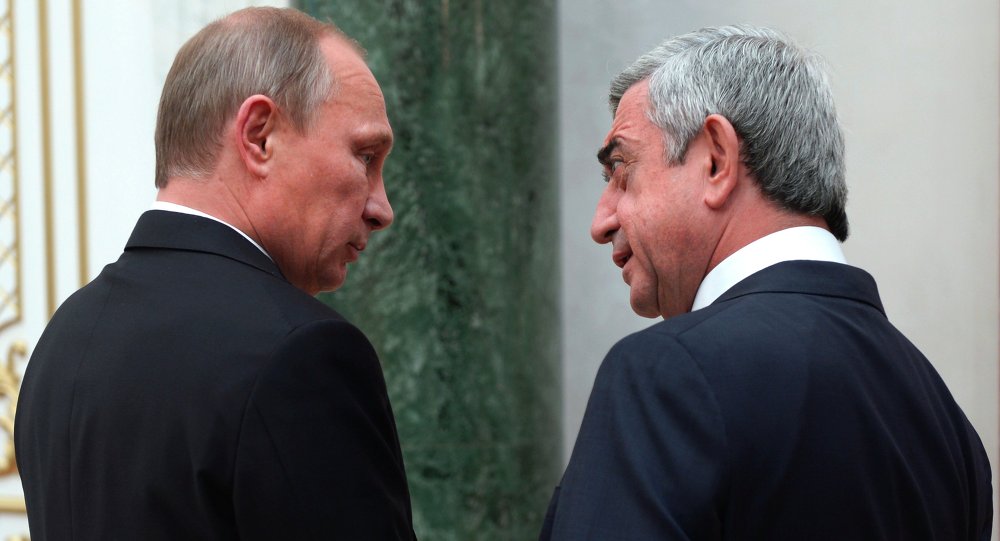
At the moment when 13 days of protests on the election of Serj Sargsyan to become the PM of Armenia after the transition on the political system from presidentialism to parliamentarianism has resulted in the resignation of S. Sargsyan the escalation of tensions between the US and Russia occupies the world agenda. Considering the possible global impacts rising from the contradictions between these two superpowers some analysts compare the current situation with Cold War period. The reactions coming from the regional actors in such a tense stage may be interesting.
Armenia’s attitude towards the tension between US and Russia rises curiosity. Armenia’s inability to normalize its relations with Azerbaijan and Turkey after the collapse of USSR led this country to the isolation from all kinds of international projects carried out within the region. Therefore, it is not surprising that during this “isolated” stage of history Armenia saw Russia as a safe harbor for itself. Armenia’s inefficiency in attempting to go out of the isolated situation it is in and the insistence on staying as the “problem-generator” in the South Caucasian region directly pertains to the support it receives from Russia.
The letter of Armen Martirosyan, the ambassador of Armenia in India, published in the section of “Letters” of Financial Times magazine in March, 10 and the response article written by Ara Tadevosyan, the founder of the Mediamax, one of the media giants in Armenia, brought some light on the questions about the position of Armenia in this crisis. Both Martirosyan and Tadevosyan approached to the Armenian interests from contradictory points of view which illuminate the challenges of determining the Armenian interests in recent years. That’s why in order to answer the question of “where are Armenian interests?” it would be effective to carefully investigate the dispute between two Armenian intellectuals – Tadevosyan and Martirosyan.
Armen Martirosyan, the Armenian ambassador in India, in his letter published in Financial Times, recalls the meeting organized at the UN headquarters in New York 13 years ago with the newly designated National Security Advisor of Trump administration, John Bolton. The ambassador indicated that both Bolton and himself were the then permanent representatives of the US and Armenia at UN, respectively. He states that their meeting was at the tense moment when the Armenian vote pertained to the Iranian resolution at the UN General Assembly did not meet the American expectations. The ambassador writes that after this event the then American mission at the UN required an urgent meeting with him and Bolton was not ready to hear “no” as an answer. Thus Martirosyan indicated that with unveiling a map and showing the neighbors of Armenia to Bolton he elucidated the reason of Armenian vote to Bolton and could persuade the current National Security Advisor of the USA.
Martirosyan stressed that then American representative at the UN who has rational personality was satisfied from his explanations. In the end of his letter Martirosyan warns “potential interlocutors” of Bolton in his new position at Trump administration and advises them to be aware of Bolton’s openness to the constructive dialogue.
In the letter depicting the meeting with the current American National Security Advisor John Bolton, Ambassador Armen Martirosyan tried to emphasize Bolton’s rational personality on the one hand, and his own diplomatic success on the other hand but could not be successful. Some expressions utilized in the letter like “It was abundantly clear that Mr. Bolton was not ready to take “no” for an answer”, or the “explanations” provided by the UN representative of one country to the other can be considered as the indicators of the weakness of the Armenian diplomacy. Moreover, the change in the decision of John Bolton after the explanations provided by the Armenian Ambassador led us to the suspicion about the knowledge of American National Security Advisor pertained to the regional issues.
After the publication of the letter the response article written by the Ara Tadevosyan, CEO of Mediamax titled as “Defend Armenia, not John Bolton[1]” brought these above mentioned questions onto the agenda. Tadevosyan with posing several questions to the Ambassador interrogates whether Armenian MFA is informed about the publication of this letter or not. Tadevosyan adds that if Armenian MFA is unaware of this publication, this kind of action taken by the diplomat may be considered as the utilization of the name of country for own ambitions and interests.
Another question asked from the Ambassador was the reason to publish this letter in such a significant time lapse, when the crisis between Russia and the US is erupted. Tadevosyan is investigating the aim and the possible contribution of this letter to the current tension.
Furthermore, Tadevosyan implies that the Ambassador in his letter disclosed the secret and embarrassing facts about the internal mechanism of diplomacy which according to him is wrong and should not be announced to the world. Later, he questions the meaning of the ambassador’s emphasis on the issue that Bolton was not ready to hear “no”. The fact about Bolton’s persuasion of the Armenian position toward Iran and surrendering his aggressive attitudes after acquiring knowledge from the Armenian Ambassador astonishes Martirosyan. Tadevosyan indicates that though the Ambassador’s will was to praise the American National Security Advisor, he conversely highlighted his illiteracy about the region and put Bolton into the vague situation.
In the last part of the article Tadevosyan interrogated the reason of writing such a letter which includes the acclamation to the newly designated National Security Advisor of the US and the aim of Martirosyan to remind Bolton’s “potential interlocutors” about the latter’s rationality. Consequently, with considering that Russia is turning into the “potential interlocutor” to Bolton due to the recent escalating tensions between the US and Russia Tadevosyan questions the motive leading Martirosyan to “warn” Russia. With scoffing Ambassador’s letter Tadevosyan emphasizes that the job of the Armenian diplomat should be the defense of Armenian interests, rather than the National Security Advisor of the USA.
When we investigate Martirosyan’s letter and Tadevosyan’s article we can discern both the existing cracks on the Armenian diplomacy and the perplexity of Armenian diplomats during their meetings with the representatives of the great powers. Indeed, the diplomatic background of Armen Sarkissian, the current President of Armenia who continued his work as a businessman before turning back to the active politics through weaving his career between business, politics and bureaucracy can be regarded as a usual pattern pertinent to Armenian diplomats.
In conclusion, although both writers defend Armenian interests, they embrace contradictory thoughts and ideas. Indeed, the dreadful situation that Armenia is in and the weakness of Armenian diplomacy can be apparently seen in the letter written by Martirosyan with the purpose of praising Bolton and himself. On the other side of the coin, Tadevosyan who wrote an article in order to criticize the letter written by the Ambassador with stressing on the term of “potential interlocutors” seemingly expressed his anxiety it may provoke for the “big brother”. The intellectual dialogue carried out between two Armenian intelligentsia – diplomat and journalist – leads us to nowhere. Consequently, as a result of the erroneous policies carried out by Armenian policy-makers the question of “where are Armenian interests?” is still left unanswered.
The original text of Ara Tadevosyan’s “Defend Armenia, not John Bolton” article
Throughout 20 years of covering Armenia’s foreign policy I have had many reasons to write about the diplomatic achievements and failures of our country, give praise or criticism where it was due. But what I have seen in the “Letters” section of Financial Times on April 10 was unprecedented – and not in a good way.
Armenian Ambassador to India Armen Martirosyan has published the following letter:
“In 2005, as the then permanent representative of Armenia to the UN, I was a first-hand witness to then US ambassador Bolton’s aggressive campaign for an anti-Iranian resolution at the UN General Assembly. Armenia’s position on the Iran vote did not meet American expectations, so the US mission contacted us with an urgent request for an appointment with Mr Bolton. It was abundantly clear that Mr Bolton was not ready to take no for an answer, and this peculiar situation called for unorthodox solutions. After a brief welcome, to my guest’s utter surprise I unveiled a map of Armenia and rolled it out over my desk. With this visual aid, I impressed on him the relevant regional complexities facing my country and thus justified our position on the resolution. Before his departure, Mr Bolton accepted a sip of Winston Churchill’s favourite Armenian brandy, Ararat, as a seal of our new understanding. My advice to all potential interlocutors is to treat Mr Bolton as a rational agent who is perfectly capable of engaging in constructive dialogue and adjusting positions based on new-found insights.”
There are so many things done wrong in this letter that I simply have to list them:
1. Why write that letter? What is the reason for the Armenian Ambassador to India “defend” an American diplomat in the English paper? Something tells me the ambassador did not consult with Armenian Foreign Minister before composing the letter. If so, Mr Martirosyan is coming forward with a personal initiative, while using the name of our country.
2. It is good to know that the ambassador had had a short meeting with John Bolton 13 years ago, but why recall it now, when the relations between USA and Russia are deteriorating and the “hero” of Mr Martirosyan’s letter has a key role in that process?
3. What does he mean by saying “It was abundantly clear that Mr Bolton was not ready to take no for an answer”? At that time, Mr Bolton was his country’s ambassador to the UN the same as Mr Martirosyan, so obviously, it was his job to protect the interests of the United States. Whether it would be a “yes” or a “no”, it would be his problem. America is a superpower, but if the Armenian ambassador thinks the other party does not want to hear a “no” and decides to try “unorthodox solutions”, it is the inner workings of the diplomatic process, and although I find these unacceptable, the rest of the world should not know about them. At least because an ambassador of the U.S. or other big country might read the letter and assume Armenian ambassadors would come to the meeting perplexed
4. If Mr Martirosyan was trying to compliment Mr Bolton, he has achieved exactly the opposite. According to the letter, a senior U.S. official would not know the challenges of the region if he wasn’t given a map, is that so?
I honestly cannot understand why the ambassador would publish that letter. Did he think that the U.S. National Security Adviser needed protection? If the aim was to support an old “friend”, a private letter would suffice. Given the Russian-US tension that I have mentioned above, Russians will be among Mr Bolton’s “potential interlocutors”, as Ambassador Martirosyan puts it. Should they really base their tactics on the recommendations by Armenian Ambassador to India during the negotiations with U.S. and Bolton?
The issue is not in the ambassador’s personality. The problem is that we forget sometimes we have no right to jeopardize the country that already has a thousand and one issues for the sake of our personal ambitions or interests. All citizens and more so, all ambassadors of the Republic of Armenia must defend our country, not a conventional John Bolton.
P.S. The only bright side in this story is the advertisement of “Ararat” brandy.
[1] Tadevosyan, Ara. "Defend Armenia, Not John Bolton." Mediamax.am. Nisan 12, 2018. http://www.mediamax.am/en/column/12822/.
© 2009-2025 Center for Eurasian Studies (AVİM) All Rights Reserved
No comments yet.
-
 WHERE ARE THE ARMENIAN INTERESTS? THE ARMENIAN POSITION IN THE US-RUSSIA TENSION.
WHERE ARE THE ARMENIAN INTERESTS? THE ARMENIAN POSITION IN THE US-RUSSIA TENSION.
Nigar SHİRALİZADE 24.04.2018 -
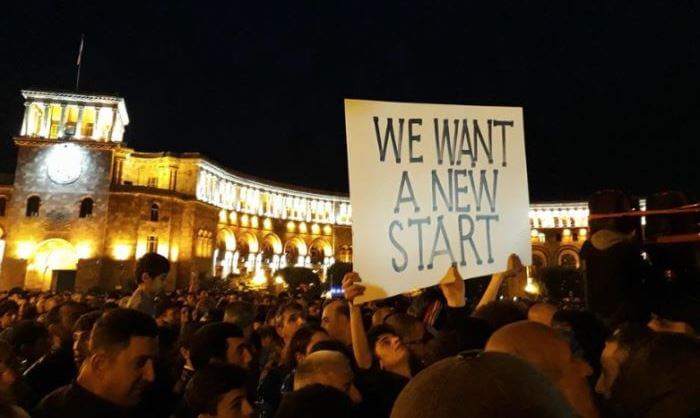 A “REVOLUTION” “CONVENIENT” FOR ALL. NAGORNO KARABAKH CONFLICT CONTINUES TO REMAIN UNSETTLED
A “REVOLUTION” “CONVENIENT” FOR ALL. NAGORNO KARABAKH CONFLICT CONTINUES TO REMAIN UNSETTLED
Nigar SHİRALİZADE 13.06.2018 -
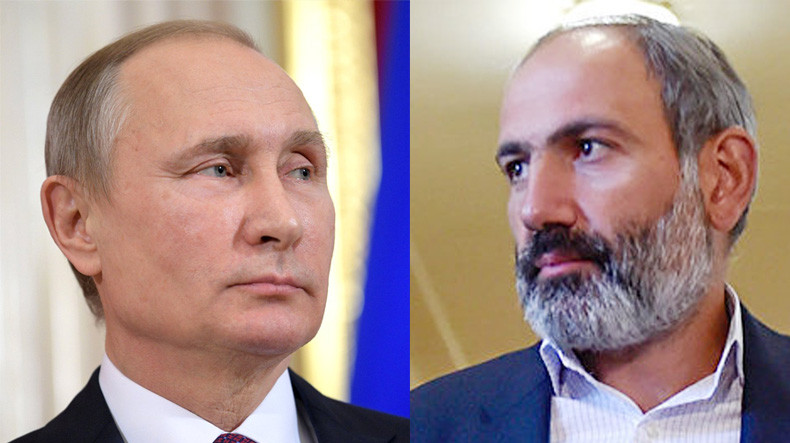 “WITCH HUNT” IN ARMENIA. REACTIONS FROM RUSSIA TO THE “PURIFICATION” OF ARMENIA FROM “KARABAKH CLAN”
“WITCH HUNT” IN ARMENIA. REACTIONS FROM RUSSIA TO THE “PURIFICATION” OF ARMENIA FROM “KARABAKH CLAN”
Nigar SHİRALİZADE 01.08.2018 -
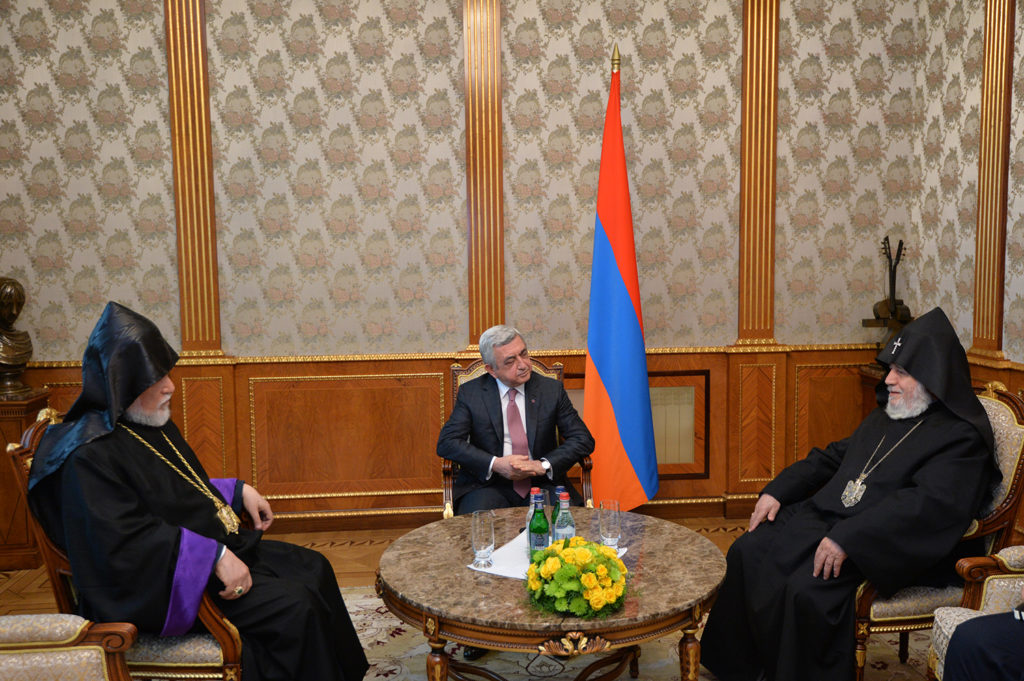 THE “VELVET REVOLUTION” AND THE ARMENIAN APOSTOLIC CHURCH. ARMENIANS DEMAND THE RESIGNATION OF KAREKIN II.
THE “VELVET REVOLUTION” AND THE ARMENIAN APOSTOLIC CHURCH. ARMENIANS DEMAND THE RESIGNATION OF KAREKIN II.
Nigar SHİRALİZADE 25.06.2018 -
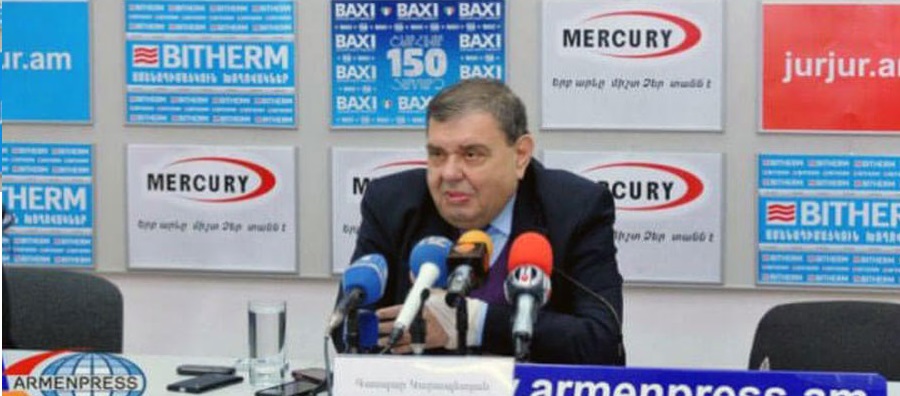 BELGIAN MPS DEFENDING KASPAR KARAMPETIAN
BELGIAN MPS DEFENDING KASPAR KARAMPETIAN
Nigar SHİRALİZADE 14.05.2018
-
ANNOUNCEMENT OF CHANGE OF GUARD AT CENTER FOR EURASIAN STUDIES (AVIM)
AVİM 02.01.2013 -
 APEC LIMA SUMMIT
APEC LIMA SUMMIT
Seyda Nur OSMANLI 28.01.2025 -
TURKEY AND THE NEW CONFIGURATIONS IN CENTRAL ASIA
Alev KILIÇ 20.09.2013 -
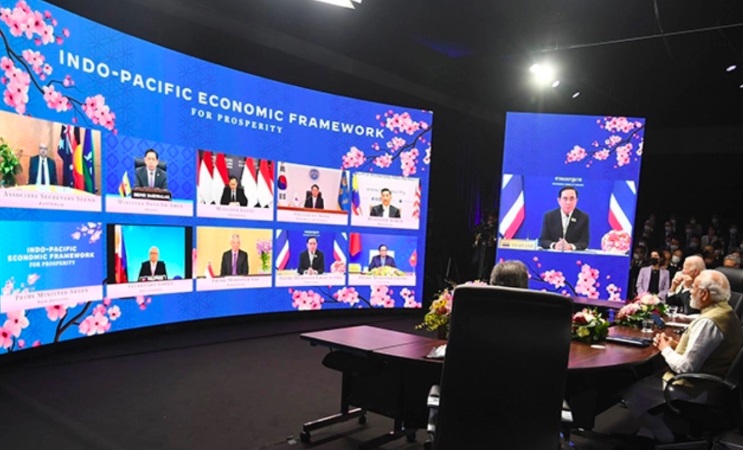 ECONOMIC INTEGRATION GROWS IN INDO-PACIFIC
ECONOMIC INTEGRATION GROWS IN INDO-PACIFIC
Şevval Beste GÖKÇELİK 07.06.2022 -
THE ARMENIAN QUESTION AFTER THE HOLIDAYS III
Ömer Engin LÜTEM 06.09.2011
-
25.01.2016
THE ARMENIAN QUESTION - BASIC KNOWLEDGE AND DOCUMENTATION -
12.06.2024
THE TRUTH WILL OUT -
27.03.2023
RADİKAL ERMENİ UNSURLARCA GERÇEKLEŞTİRİLEN MEZALİMLER VE VANDALİZM -
17.03.2023
PATRIOTISM PERVERTED -
23.02.2023
MEN ARE LIKE THAT -
03.02.2023
BAKÜ-TİFLİS-CEYHAN BORU HATTININ YAŞANAN TARİHİ -
16.12.2022
INTERNATIONAL SCHOLARS ON THE EVENTS OF 1915 -
07.12.2022
FAKE PHOTOS AND THE ARMENIAN PROPAGANDA -
07.12.2022
ERMENİ PROPAGANDASI VE SAHTE RESİMLER -
01.01.2022
A Letter From Japan - Strategically Mum: The Silence of the Armenians -
01.01.2022
Japonya'dan Bir Mektup - Stratejik Suskunluk: Ermenilerin Sessizliği -
03.06.2020
Anastas Mikoyan: Confessions of an Armenian Bolshevik -
08.04.2020
Sovyet Sonrası Ukrayna’da Devlet, Toplum ve Siyaset - Değişen Dinamikler, Dönüşen Kimlikler -
12.06.2018
Ermeni Sorunuyla İlgili İngiliz Belgeleri (1912-1923) - British Documents on Armenian Question (1912-1923) -
02.12.2016
Turkish-Russian Academics: A Historical Study on the Caucasus -
01.07.2016
Gürcistan'daki Müslüman Topluluklar: Azınlık Hakları, Kimlik, Siyaset -
10.03.2016
Armenian Diaspora: Diaspora, State and the Imagination of the Republic of Armenia -
24.01.2016
ERMENİ SORUNU - TEMEL BİLGİ VE BELGELER (2. BASKI)
-
AVİM Conference Hall 24.01.2023
CONFERENCE TITLED “HUNGARY’S PERSPECTIVES ON THE TURKIC WORLD"









